
Day camp songs are a beloved tradition in Quebec‚ fostering connections and joy through music. Often sung around campfires or during hikes‚ these interactive tunes engage children and adults alike. Many resources‚ including PDF files‚ offer lyrics and chords‚ making it easy for camp leaders to teach and everyone to participate.
The Importance of Singing in Day Camps
Singing is a cornerstone of day camp experiences‚ fostering camaraderie and joy among participants. It breaks down barriers‚ creating a sense of belonging and unity. Day camp songs‚ often passed down through generations‚ serve as a tool for cultural transmission and language learning. They also play a role in teaching children teamwork‚ creativity‚ and emotional expression. The interactive nature of these songs‚ especially those with gestures‚ enhances engagement and memory retention. For many‚ singing becomes a cherished part of camp traditions‚ leaving lasting memories and a deep connection to their heritage. This shared musical experience is invaluable for personal and social development‚ making it a vital part of day camp activities.
Brief History of Quebec’s Day Camp Songs
Quebec’s day camp songs trace their roots to traditional French folk music and Indigenous influences‚ evolving over generations. These songs gained popularity in the mid-20th century as camping became a beloved summer activity. Many classic tunes‚ such as “Le Petit Bonheur” and “Boum”‚ were adapted for camp settings‚ blending humor‚ storytelling‚ and simple melodies. Camp songs often reflected themes of nature‚ friendship‚ and adventure‚ making them timeless favorites. The tradition was further enriched by camp leaders who created new songs or modified existing ones to suit their groups. Today‚ these songs remain a vital part of Quebec’s cultural heritage‚ with many resources‚ including PDF files‚ preserving their lyrics and chords for future generations to enjoy.
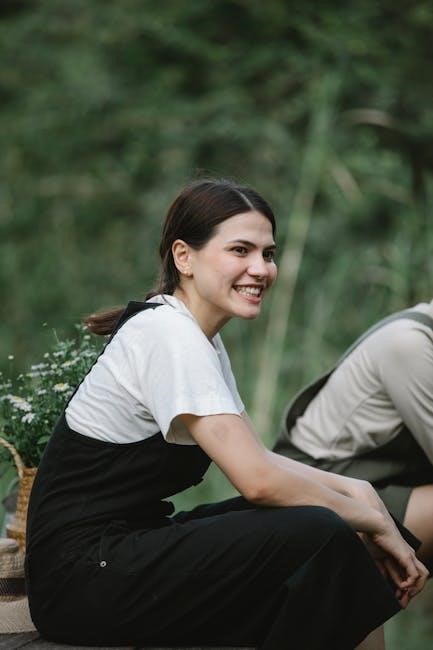
Popular Day Camp Songs in Quebec
Quebec’s day camp songs include timeless favorites like “Le Petit Bonheur”‚ “Boum”‚ and “Le Grand Voyage”. These catchy tunes‚ often with simple lyrics and gestures‚ are beloved by children and adults alike‚ fostering joy and camaraderie during camp activities.
Top 10 Must-Know Day Camp Songs
Quebec’s day camp repertoire features 10 iconic songs that are essential for any camper. Topping the list are “Le Petit Bonheur”‚ “Boum”‚ and “Le Grand Voyage”‚ known for their catchy melodies and easy-to-learn lyrics. These songs are often sung with gestures‚ making them interactive and engaging for children. Other favorites include “La Bataille”‚ “Les Bibittes”‚ and “Un Canadien Errant”‚ which blend humor and storytelling. Many of these songs are available in PDF formats‚ complete with lyrics and chords‚ making them accessible for camp leaders and participants alike. These timeless tunes foster camaraderie and create lasting memories for campers of all ages.
Classic Examples and Their Significance
Classic day camp songs in Quebec hold a special place in the province’s cultural heritage. Many of these timeless tunes have been passed down through generations‚ serving as a bridge between tradition and modern camp experiences. Songs like “Le Petit Bonheur” and “Boum” are celebrated for their catchy melodies and engaging rhythms‚ making them perfect for group singing. These classics often incorporate gestures‚ fostering teamwork and creativity among participants. Their significance lies in their ability to connect campers with Quebec’s rich musical history while providing a fun and inclusive environment. Many of these songs are available in PDF formats‚ ensuring their legacy endures for future generations of campers.

Learning and Teaching Day Camp Songs
Learning and teaching day camp songs is a joyful process that connects campers through shared experiences. Including hand gestures and announcing song titles encourages participation and engagement among children. Resources like PDF files provide easy access to lyrics and chords‚ helping leaders guide sing-alongs effectively.
Tips for Camp Leaders to Engage Children
Engaging children in day camp songs requires creativity and enthusiasm. Camp leaders should start with simple‚ catchy tunes that children can easily follow. Encourage participation by incorporating hand gestures and movements‚ making the experience interactive. Announce song titles clearly so children can recognize and request their favorites. Introduce songs with energy and passion to inspire excitement. Encourage shy children by creating a supportive environment where everyone feels comfortable joining in. Use visual aids like PDF sheets of lyrics to help campers follow along. Rotate through a variety of songs to keep the energy high and cater to different preferences. Most importantly‚ make it fun—laughter and joy are key to fostering a love for singing.
How to Teach Songs with Gestures and Actions
Teaching day camp songs with gestures and actions enhances engagement and makes learning fun. Start by demonstrating simple movements that match the song’s rhythm and lyrics. Encourage children to mimic your actions‚ creating a sense of unity. Break down complex gestures into smaller‚ manageable steps for younger participants. Use visual cues like clapping‚ jumping‚ or waving to emphasize key phrases. Repeat songs with actions multiple times to build confidence and familiarity. For shy children‚ pair them with more outgoing peers to foster participation. Incorporate props like scarves or ribbons for added creativity. Make it interactive by letting children suggest their own gestures‚ fostering a sense of ownership. This approach ensures everyone feels included and excited to sing along.
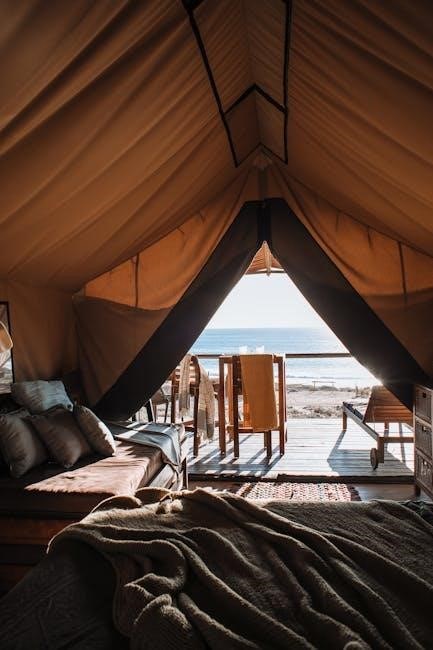
Guitar Accompaniment for Day Camp Songs
Guitar accompaniment brings day camp songs to life. Simple chords like G‚ C‚ and D are common. PDF resources offer chord progressions and strumming patterns for easy learning.
Basic Guitar Chords for Camp Songs
Mastering basic guitar chords is key to accompanying day camp songs. Common chords like G‚ C‚ D‚ and Am are frequently used in Quebec’s camp music. These simple progressions make songs easy to learn and play‚ even for beginners. Many PDF resources provide chord charts and lyrics‚ helping camp leaders and participants alike. The repetitive nature of camp songs allows for quick learning and engagement. Leaders can teach chords gradually‚ ensuring everyone can join in. With practice‚ these chords bring camp songs to life‚ fostering a sense of community and joy around the campfire or during hikes.
Popular Chord Progressions Used in Camp Songs
Quebec’s day camp songs often use simple‚ catchy chord progressions that are easy to follow. The most common progressions include G-C-D‚ D-A-Bm‚ and C-G-Am‚ which are versatile and repetitive‚ making them ideal for group singing. These progressions are found in many popular camp songs‚ such as “Le Petit Bonheur” and “Boum‚” and are well-suited for acoustic guitar accompaniment. The repetitive nature of these chords allows campers to join in quickly‚ creating a lively and inclusive atmosphere. Many PDF resources provide chord diagrams and sheet music‚ making it easy for leaders to teach these progressions. These chord sequences are perfect for campfires‚ hikes‚ or any outdoor activity‚ ensuring everyone can participate and enjoy the music together.
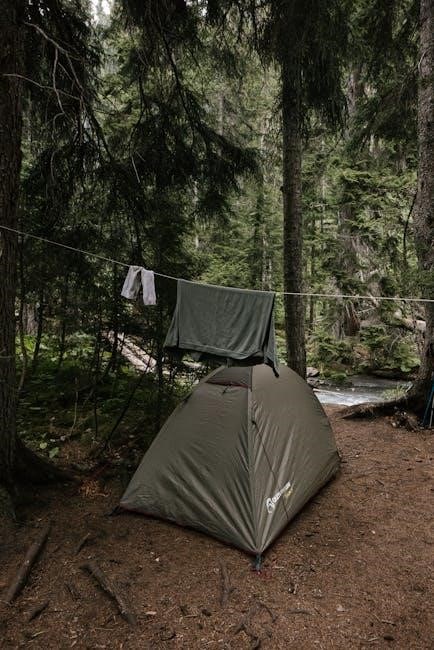
Resources for Day Camp Songs
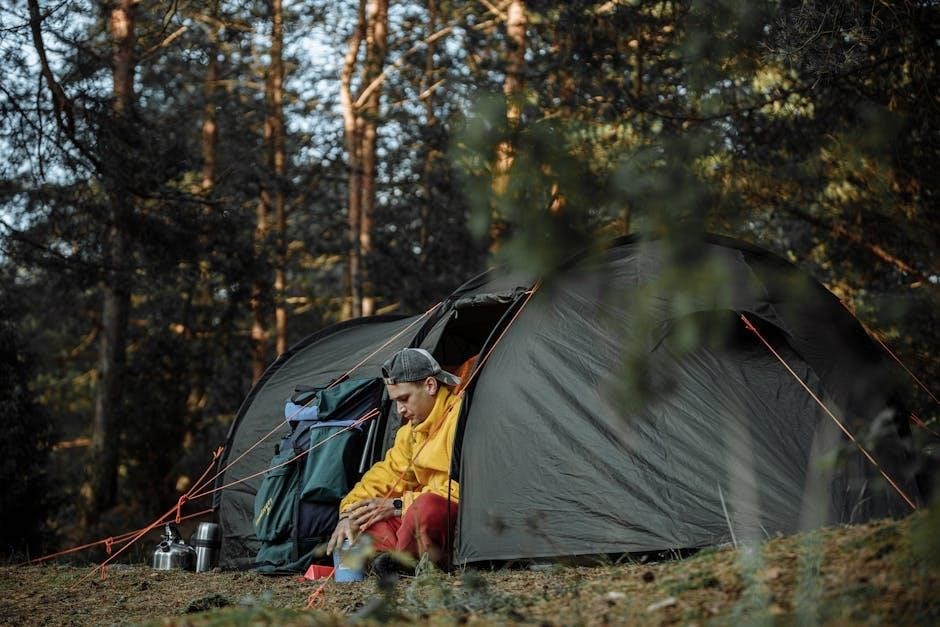
Various websites offer free PDF files of camp song lyrics‚ chords‚ and sheet music. These resources provide easy access to popular Quebec day camp songs for leaders and participants.
Where to Find Free PDF Files of Song Lyrics

Free PDF files of day camp song lyrics are widely available online. Websites like Chansons de Bivouac and other Quebec-based platforms offer comprehensive collections of camp songs. These resources often include full lyrics‚ chord progressions‚ and even sheet music. Many sites are designed for camp leaders‚ providing easy access to popular and classic songs. Some platforms also feature video tutorials and interactive tools to help teach the songs. Additionally‚ forums and community websites share user-contributed PDF files‚ ensuring a diverse range of options. These resources make it simple for anyone to download and print the lyrics‚ fostering engagement in camp activities. They are invaluable for organizing sing-alongs and campfire sessions.
- Websites like Chansons de Bivouac offer free PDF downloads.
- Resources include lyrics‚ chords‚ and sheet music.
- Video tutorials and interactive tools are often available.
Websites Offering Free Sheet Music and Chords
Several websites provide free sheet music and chords for day camp songs‚ making it easy for camp leaders and enthusiasts to access this music. Popular platforms like Chansons de Bivouac and other Quebec-based sites offer detailed resources‚ including sheet music and chord progressions for both classic and modern camp songs. These websites often feature user-friendly formats‚ such as downloadable PDF files‚ ensuring accessibility for everyone. Many also include video tutorials and interactive tools to help learners master the songs. Additionally‚ some sites allow users to contribute their own arrangements‚ fostering a sense of community and collaboration.
- Chansons de Bivouac offers free sheet music and chord progressions.
- Resources often include PDF files for easy downloading.
- Video tutorials and interactive tools are available on some platforms.

Cultural and Educational Value
Day camp songs enrich Quebec’s cultural heritage‚ fostering language‚ history‚ and teamwork. They educate children through interactive lyrics and rhythms‚ promoting social bonding and creative expression.
The Role of Day Camp Songs in Quebec Culture
Day camp songs hold a cherished place in Quebec’s cultural identity‚ fostering community and shared heritage. These songs‚ often sung during outdoor activities like camping and hiking‚ reflect the province’s deep connection to nature and collective traditions. They serve as a bridge between generations‚ preserving French-Canadian language and customs. Many popular chansons‚ such as “Alouette” and “Les Raftmen‚” have become iconic‚ embodying Quebec’s history and values. By teaching children about their cultural roots‚ these songs also play a vital role in education and identity formation. Their rhythmic melodies and engaging lyrics continue to inspire‚ making them a cornerstone of Quebec’s vibrant musical landscape.
How Singing Benefits Children’s Development
Singing day camp songs significantly enhances children’s development by fostering creativity‚ teamwork‚ and emotional expression. It improves language skills through repetitive phrases and rhymes‚ while rhythm and melody boost memory and concentration. Interactive songs‚ often with gestures‚ encourage physical coordination and motor skills. Singing in groups builds confidence‚ teaches collaboration‚ and strengthens social bonds. Additionally‚ it provides a platform for cultural education‚ helping children connect with Quebec’s heritage. The joy of singing also reduces shyness‚ promoting self-esteem and emotional well-being. These experiences create lifelong memories and a deep appreciation for music and community. Resources like PDF files make it easy for leaders to share these benefits with children of all ages.
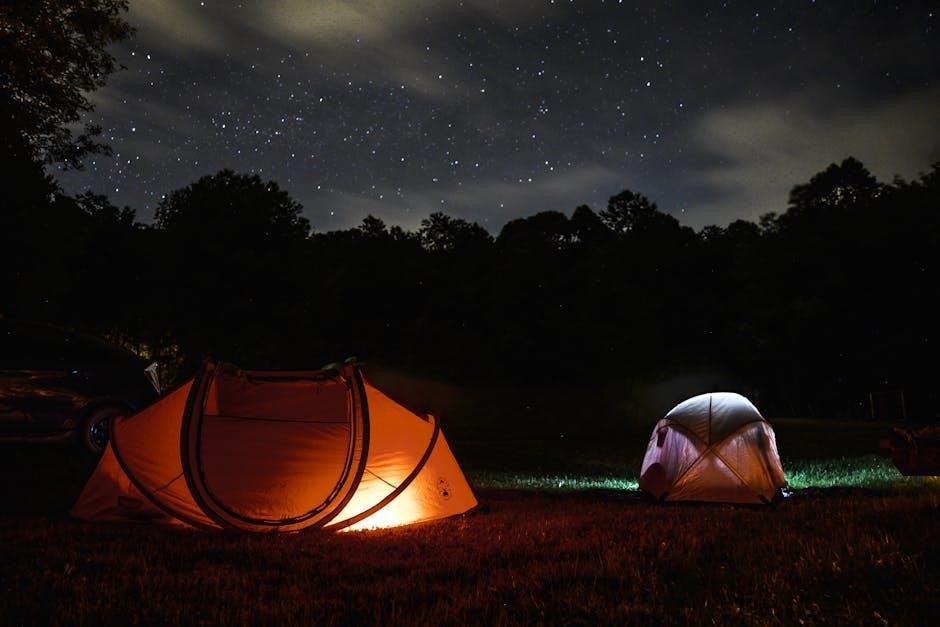
Practical Guide for Camp Song Leaders
Leading camp songs effectively involves organizing engaging sing-alongs and ensuring all participants feel included. Resources like PDF files provide easy access to lyrics and chords‚ helping leaders prepare and teach songs with confidence. Incorporating gestures and actions enhances interaction‚ making sessions lively and memorable for children.
Organizing Sing-Alongs and Campfire Sessions
Organizing successful sing-alongs and campfire sessions requires careful preparation and creativity. Begin by selecting a mix of popular and easy-to-learn songs‚ ensuring they resonate with both children and adults. Use PDF resources to distribute lyrics and chords‚ making it accessible for everyone to join in. Create an inviting atmosphere by arranging seating around the campfire and encouraging participation through call-and-response songs. Introduce each song with a brief story or explanation to connect the group emotionally. Leaders should set the mood with a guitar or other instruments‚ guiding the group through verses and choruses. Incorporate gestures and movements to make the experience interactive and memorable. This approach fosters a sense of community and ensures that everyone feels included‚ making the sing-alongs a highlight of the camp experience.
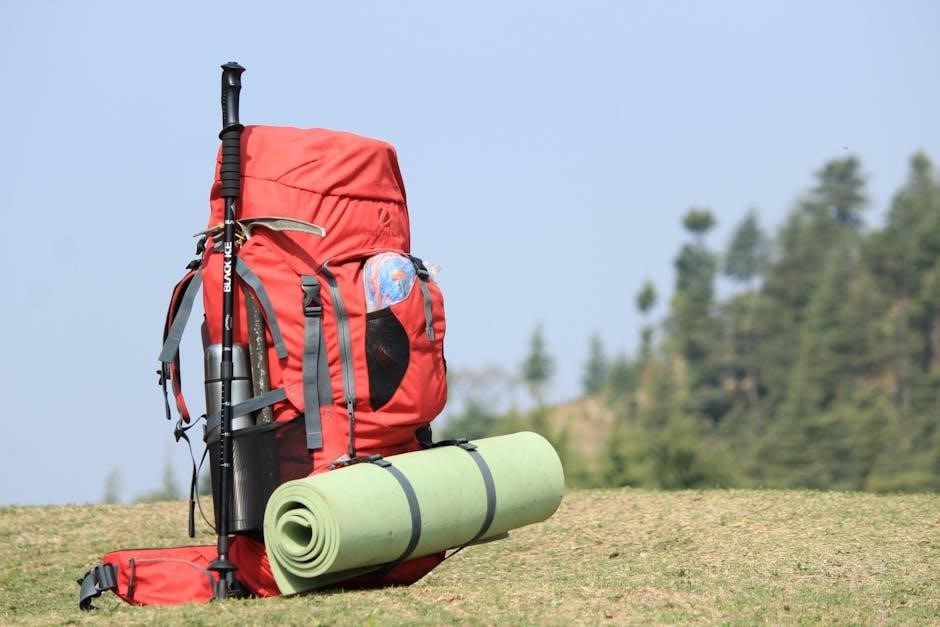
Encouraging Participation from Shy or Young Children
Encouraging shy or young children to participate in sing-alongs requires a nurturing and inclusive approach. Start by creating a welcoming environment where every voice is valued. Use visual aids like PDF lyric sheets to help them follow along‚ and begin with simple‚ repetitive songs that are easy to learn. Leaders should model enthusiasm and patience‚ smiling and encouraging even the quietest participants. Introduce songs with gestures or movements‚ making it easier for children to engage without feeling pressured to sing loudly. Celebrate small successes‚ such as clapping or humming‚ to build confidence. Pairing shy children with more outgoing peers can also foster a sense of belonging. Over time‚ these strategies help young campers feel comfortable joining in and enjoying the shared experience of singing together.
Day camp songs hold timeless appeal‚ preserving memories and joy through accessible PDF resources‚ fostering connections and smiles for campers of all ages.
The Timeless Appeal of Day Camp Songs
Day camp songs captivate hearts across generations‚ offering a shared experience that fosters joy and connection. Their simplicity and catchy melodies make them easy to learn‚ while their interactive nature‚ often featuring gestures and call-and-response formats‚ ensures active participation. The availability of PDF files and online resources has further cemented their popularity‚ allowing camp leaders to easily access lyrics and chords. These songs evoke nostalgia for past campers while creating new memories for younger generations. Their ability to transcend time and adapt to diverse settings ensures they remain a cherished part of camp culture‚ providing a sense of community and shared identity for all who sing them.